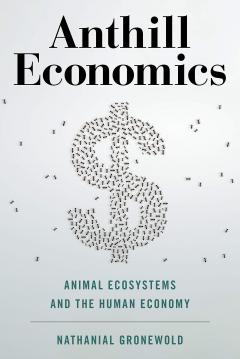Does modern economic theory violate some basic, fundamental laws of physics? That is the question that award-winning environmental and energy writer Nathanial Gronewold sets out to answer in Anthill Economics.
Gronewold points out that the modern school of economics is missing a significant piece of the puzzle: energy. And not just oil, or natural gas or wind power, but rather the fundamental importance of energy in transforming matter into food, shelter, and material possessions. Ecologists have been using the principles of biophysics population density, energy return on investment, and habitation patterns to study ecosystems for centuries. But what if those same principles hold the key to the global human economy? After all, at its core, the global economy is simply humanity s ecosystem.
Anthill Economics puts forth an innovative and cross-disciplinary approach, asserting that biophysical laws are just as fundamental to the global economy as they are to zoology and entomology. The rollercoaster-like rise and fall of caribou population on a remote island can teach us about resource allocation and global inequality. The behavior of squirrels gathering nuts is a lesson in economic energy return on investment and wage stagnation. Could human traffic patterns mimic the daily pulse of ants in the forests marching in and out of their own central business districts? And, will global warming change these patterns for humans and insects alike?
Categorii:
Limba:
Engleza
Data publicarii:
2020
Editura:
Tip coperta:
Hardcover
Nr. pagini:
240
ISBN:
9781633886520
Dimensiuni: l: 16cm | H: 24cm
14500
Livrare în 24h! (a doua zi)
În stoc
Livrare astăzi cu bicicleta.
Livrare în 24h! (a doua zi)
Livrare în 24h! (a doua zi)
Preț valabil exclusiv online!
Împachetare cadou gratuită!
Transport gratuit peste 150 de lei.
Retur gratuit în 14 zile.
Ai întrebări? Contactează-ne!

